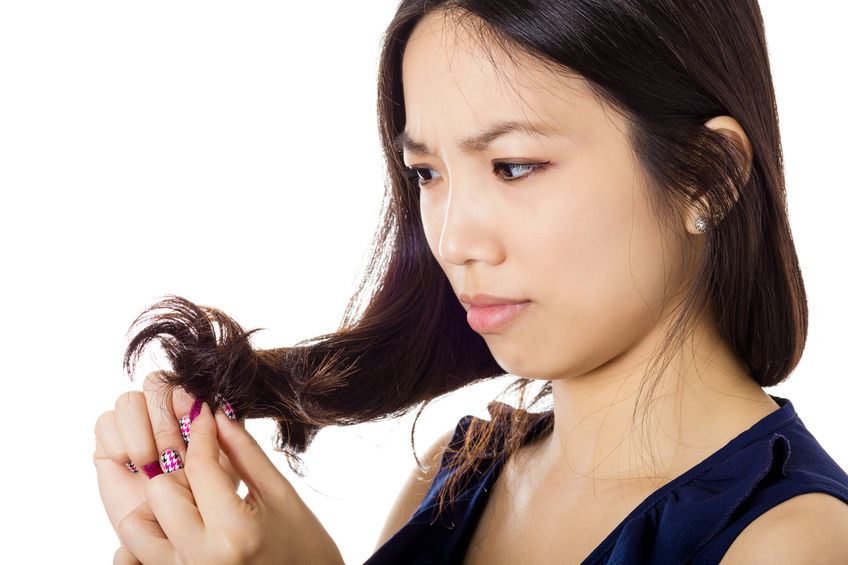I’ve been nagged at countless times by my mum that going to bed with wet hair is going to cause me to fall sick or get a headache (or what the older generation call “head wind”, in dialect). Whether or not you know about sleeping with wet hair effects, there could be some truth to what your mum says.
But thankfully, that’s just an old wives’ tale passed down from generation to generation, which you should listen to with a pinch of salt.
Going to sleep with wet hair isn’t going to cause you to catch a virus. No thanks to Covid-19, we now know that viruses are spread through respiratory droplets and physical contact.
However, you might feel cold if you’re sleeping in an air-conditioned room with wet hair, and if your immunity is low, you may then catch a cold from it.
That aside, here are other more concerning reasons why you should dry your hair before you go to bed, no matter how tired you are.
Sleeping With Wet Hair Effects
More Breakages

Photo: 123rf
Your hair is most vulnerable when it’s wet as it tends to break easily. All the tossing and turning in bed can stretch and damage the hair shaft, causing wet strands of hair to break and drop prematurely.
That said, you shouldn’t be combing your tresses straight out of the shower too. Instead leave your hair to dry before brushing through it.
Bad Hair Day
The water from your hair that’s absorbed by the pillow also strips your hair from its natural oils, and when your hair is dehydrated, it loses its shine.
There are days when I’m just too exhausted to dry my hair at night, and I’ll wake up with frizzy hair the next morning that’s hard to manage, making my overall appearance unkempt.
My hair will also have more tangles, and it usually takes a longer time to get ready in the morning while trying to tame and restore my mane.
Scalp Problems

Photo: iStock
Like all other areas of our body, bacteria is present on our scalp as well. So, leaving your scalp moist, combined with the heat from our body, will create the perfect environment for bacteria to thrive on.
A constantly damp pillow is also a hotbed for both bacteria and fungus to grow, and merely changing your pillowcase isn’t going to remedy it as the bacteria and fungus would have gone deeper beyond the surface. You may even end up with acne problems in the long run, from sleeping on a bacteria-ridden surface. Yikes.
If you have an oily scalp, it’s likely that jumping into bed with wet hair will cause your scalp to smell bad too, for which I was embarrassingly called out by a scalp specialist when she ran her fingers through my hair.
She advised to at least dry the scalp quickly with a hairdryer set on low heat if you don’t have the time to dry your hair out completely before sleeping.
Hair Loss & Fungal Infection
These scalp problems can eventually lead to hair loss, and in more serious cases, a fungal infection.
One such infection is ringworm of the scalp, causing your scalp to be itchy and visibly red, with bald patches.
According to Mayo Clinic, when your scalp is severely inflamed from ringworm, the condition can cause scarring on the scalp and even permanent hair loss.
This post was first published on AsiaOne and was republished on theAsianparent with permission.

Also read:
Parent’s Guide To Fever And Heat-related Illnesses In Children During Hot Weather
How to Spot the Difference Between a Cold or a Flu
Read about the best hair loss prevention shampoos here.
 Together Against RSV
Together Against RSV SG60
SG60 Pregnancy
Pregnancy Parenting
Parenting Child
Child Feeding & Nutrition
Feeding & Nutrition Education
Education Lifestyle
Lifestyle Events
Events Holiday Hub
Holiday Hub Aptamil
Aptamil TAP Recommends
TAP Recommends Shopping
Shopping Press Releases
Press Releases Project Sidekicks
Project Sidekicks Community
Community Advertise With Us
Advertise With Us Contact Us
Contact Us VIP
VIP Rewards
Rewards VIP Parents
VIP Parents
